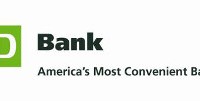Mortgage insurance affects home buying decisions
Research released Thursday by TD Bank, America's Most Convenient Bank®, revealed that 37 percent of those who purchased a home in the past 10 years – and 43 percent of those who did so within the last two years – required mortgage insurance. Of those who required private mortgage insurance, 65 percent said that the addition of a mortgage insurance premium left them paying a higher monthly mortgage payment than they originally expected.
The study, which is an extension of the 2014 TD Bank Mortgage Service Index, surveyed more than 2,000 Americans who have purchased a home in the past 10 years. The findings indicate the growing impact on mortgage payments from private mortgage insurance, which is often required when home buyers are unable to make a 20 percent down payment to purchase a home. With average PMI costing approximately $100 a month, mortgage insurance can become a significant expense for many borrowers before they reach 20 percent equity in their property. Further, FHA loans now require PMI for the life of the loan, which considerably increases the total cost of home ownership for borrowers who cannot make a 20 percent down payment.
"PMI has had a definitive impact on many home buyers, including making them rethink or delay the purchase of a home in light of not being able to meet monthly mortgage payments," said Michael Copley, executive vice president of retail lending at TD Bank. "While FHA loans may be available, home buyers, especially first time buyers, may not realize the options available to them that don't require PMI insurance. Prospective buyers should meet with a lender or financial institution to find a loan solution that meets their needs and monthly budget."
The TD Bank survey also revealed that:
- Twenty-seven percent of those who purchased a home within the last 10 years felt that PMI costs impacted the home they purchased. For those who purchased a home in the last two years, that number increased to 35 percent.
- Fifty-three percent of respondents reported experiencing a negative impact because of the additional cost of PMI. Over four in ten of those requiring PMI reported having to cut back on small and daily purchases and / or larger household purchases.
The TD Bank survey also found that 43 percent of Millennials (ages 18-34) did not make a 20 percent down payment and required mortgage insurance, as compared to 37 percent of Gen X-ers (ages 35-54) and 23 percent of Baby Boomers (ages 55 and older).
- Regardless of age, respondents felt that the impact of PMI left them paying more than expected – 60 percent of Millennials, 60 percent of Gen X-ers and 58 percent of Baby Boomers.
- Compared with Gen X-ers and Baby Boomers, Millennials requiring PMI felt most impacted in home purchasing decisions, such as delaying the purchase of a home or purchasing a smaller home (30 percent vs. 18 percent for Gen X-ers and 14 percent for Baby Boomers).
- Forty six percent of Millennials responded that they've had to cut back on small/daily purchases and/or cut back or delay larger household purchases due to the additional cost of PMI, while 38 percent of Gen X-ers and only 26 percent of Baby Boomers experienced similar cut backs when requiring PMI.

